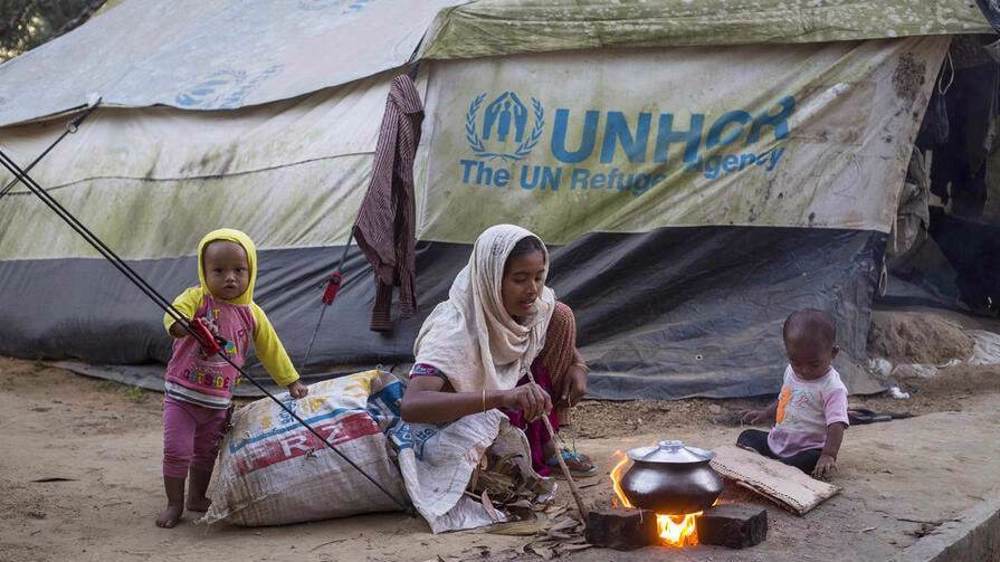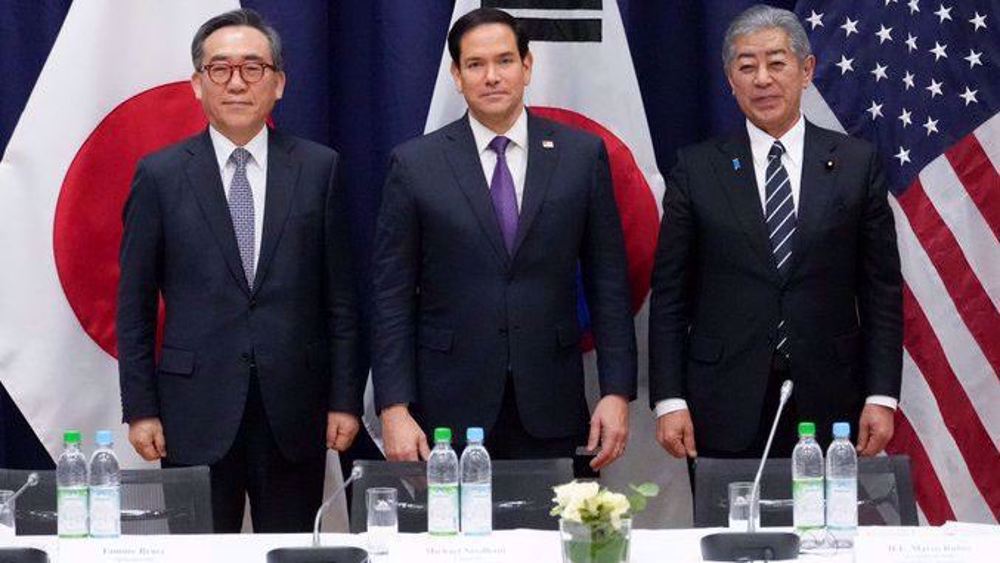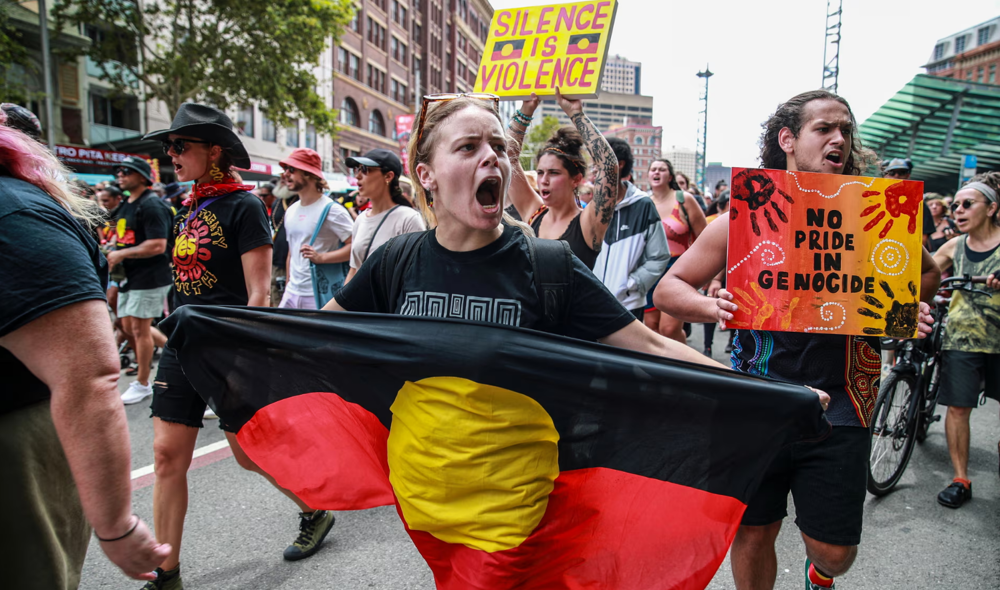‘Myanmar forcing Rohingyas to leave no man's land’
Myanmar border guards have started ordering the 45,000 displaced Rohingya Muslims stranded in a no man’s land along the border with Bangladesh to leave.
Reports by the United News Bangladesh (BNU) said on Sunday that Myanmar’s Border Guard Police (BGP) had started telling the Rohingya living in the no man’s land along the Tombru border point in Banbarban District of Bangladesh to leave the area.
Myanmar border guards used loudspeakers attached to trees to make repeated announcements that the Rohingya refugees had to move to somewhere else, according to the Rohingya living there.
Dil Mohammad, a Rohingya community leader living in the no man’s land, said BGP forces did not tell where the Rohingyas should go.
“We want to return home [in Myanmar] now, but not to elsewhere,” he said.
Some 700,000 Rohingya Muslims, mostly women and children, have fled widespread violence in Myanmar’s Rakhine State and taken shelter in Bangladesh since last August.
According to an unofficial estimate, nearly 5,800 Rohingyas have also been living on a thin strip of land between the two countries — the so-called no man’s land.

Myanmar has come under intense criticism since the military launched a deadly crackdown against the Muslim minority in Rakhine in late 2016. Thousands of the Muslims have been killed in that crackdown.
The hundreds of thousands who have fled to Bangladesh have brought with them horrifying accounts of massacres, gang rape, and arson by Myanmar’s military forces and Buddhist mobs.
The international medics who have examined the refugees have verified that their bodily injuries conform to the accounts of violence, including rape.
The UN has described the violence against the Rohingya as “ethnic cleansing” and possibly “genocide.”
The Muslim community has lived in Myanmar for generations but its members are denied citizenship and are branded illegal immigrants from Bangladesh, which likewise denies them citizenship.
Bangladesh and Myanmar signed an agreement late last year to return the Muslim refugees. The process has been delayed due to the Muslims’ concerns about their safety.
Until we meet again: A letter to the ‘master of resistance’ Sayyed Hassan Nasrallah
Unraveling Iran’s puzzle of assets frozen abroad
Indian worker shot dead in Jordan trying to enter Israeli-occupied territories
Leader’s advisor warns Turkish officials against repeating baseless claims about Iran
‘US complicity’: Hezbollah says Israel used American intel, missiles to assassinate Nasrallah
Japanese judge elected ICJ president, set to oversee Israeli genocide case
Hamas: Israel can’t blackmail, terrify Palestinians through starvation, siege
Western media ‘manufacturing consent’ for genocide by pinning truce breach on Hamas














 This makes it easy to access the Press TV website
This makes it easy to access the Press TV website